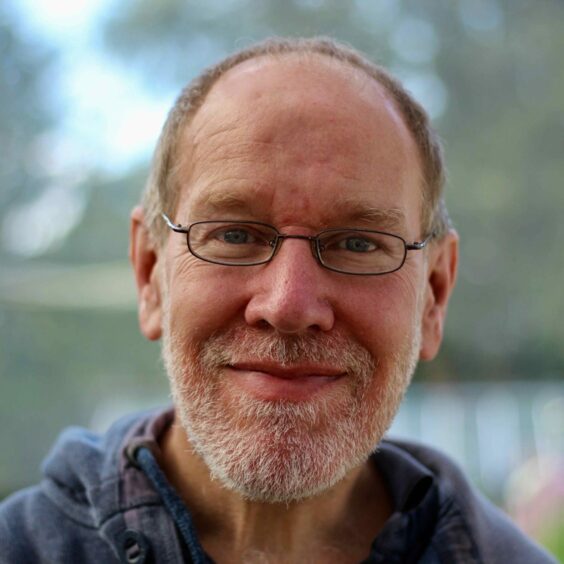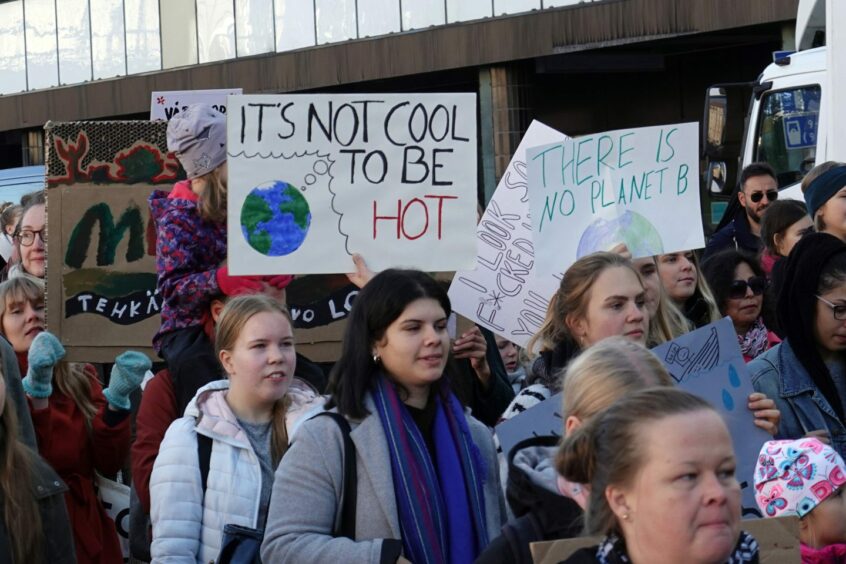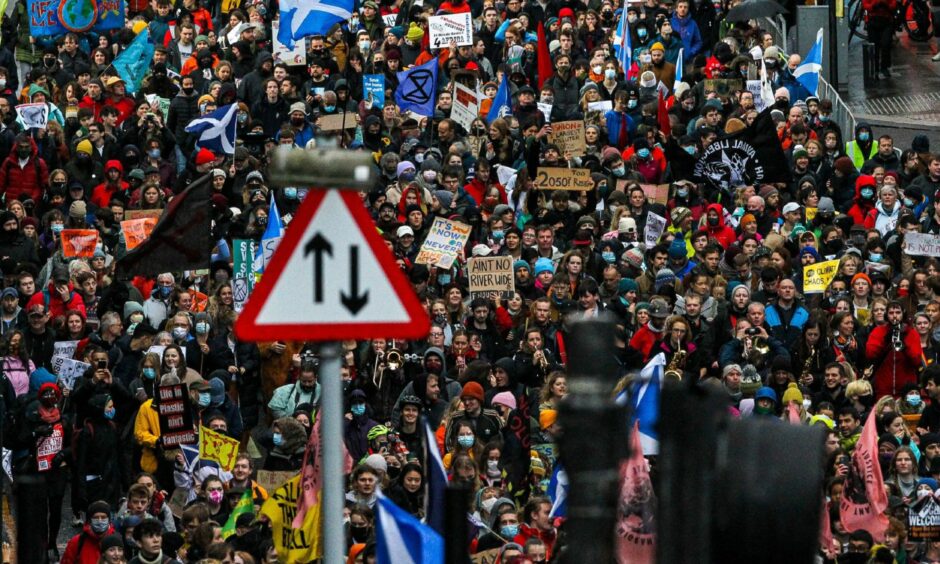As the climate crisis worsens and temperatures rise, a north-east doctor has shared his tips on coping with eco anxiety.
After penning Active Hope a decade ago, Dr Chris Johnstone’s work has been republished to mark its 10th anniversary.
The Forres doctor and resilience specialist wrote the book alongside 93-year-old American activist Joanna Macy.
It’s since been published in 14 different languages and helps readers be aware of climate issues, and learn how to address them and protect their mental health at the same time.
Dr Johnstone says five steps can help us manage eco anxiety by feeling less overwhelmed.
“When we’re stretched by difficult conditions, we can surprise ourselves and discover hidden strengths,” he added.
1. Could my eco anxiety be healthy?
Dr Johnstone says anxiety is a normal, healthy responds to danger.
Our emotional responses are part of our threat detection system – and the first step towards taking action.
“If you feel disturbed by what’s happening in the world, it shows you’ve noticed there’s a problem,” he explained.
“Don’t be surprised if you feel overwhelmed – that’s understandable given the scale of what we face.”
2. Take a moment to recharge
When you’re facing a difficult challenge, Dr Johnstone advises taking a moment to strengthen yourself first.
And in doing these “regenerative practices” we can recharge and become more resourceful.
He suggests something simple like gratitude – focusing attention on what we love or appreciate, and those we feel grateful to.
3. Recognise why you’re anxious about climate change
“If someone you loved was seriously injured, you might feel understandably upset,” Dr Johnstone explained.
This is similar when we’re passionate about the world we live in – causing eco anxiety at what could happen next.
He added: “We feel because we care.
“If injury to our world didn’t mean much to us, we’d be less motivated to prevent its repetition.”
4. A quick tip to shift your perspective
If you ever find yourself thinking “I can’t do anything”, there’s one simple tip that could help.
Dr Johnstone advises adding the word “yet” to the end – shifting your mindset to recognise that it’s an ongoing process.
This can help you if you feel like you want to give up on reaching a goal, and can help motivate you to find new training, tools and allies.
5. Take a step of active hope
Dr Johnstone says active hope is different from just being hopeful.
This requires actually taking action to change the circumstances you’re feeling anxious about.
“When we think about the best that can happen, and the story of how this might come about, each of us can play a role in that,” he added.
Read more:
‘Giant ball of death:’ Young people in Perthshire fear dying planet is past saving
Climate anxiety or fatigue as road trippers pause in Auchterarder
Chris Deerin: Nuclear threat was nothing compared to the eco-anxiety today’s children face





Conversation